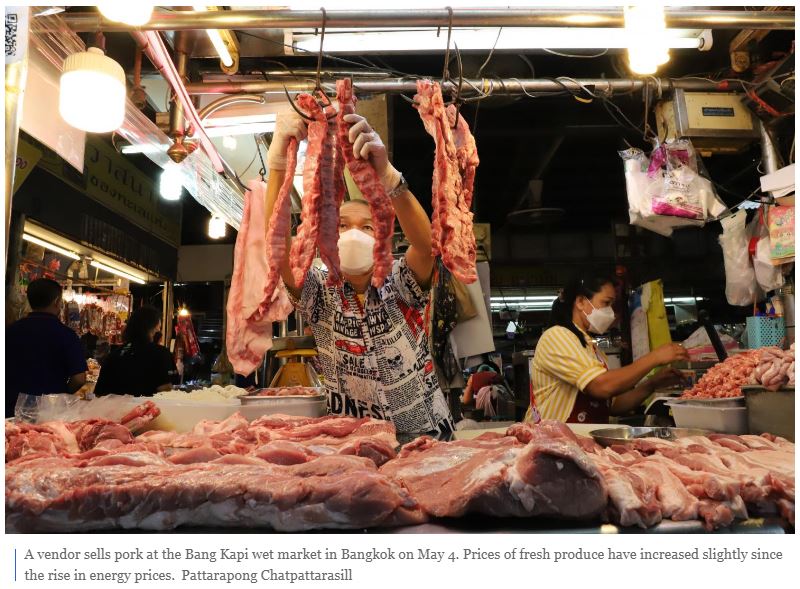Thailand: Inflation heads industry agenda
Soaring inflation tops the agenda when the Joint Standing Committee on Commerce, Industry and Banking (JSCCIB) meets this Wednesday to discuss Thailand’s economic outlook in the second half of the year.
The Federation of Thai Industries (FTI) is preparing to discuss the issue at the meeting as the inflation rate remains lofty, driven in part by the impact of the Russia-Ukraine war, said FTI chairman Kriengkrai Thiennukul.
The war, which started when Russia invaded Ukraine on Feb 24, is blamed for causing a global oil price surge and higher prices of some key raw materials.
Thailand is still struggling to deal with the economic impact of Covid-19.
“The business sector is concerned that the cost of living will keep increasing,” said Mr Kriengkrai.
The inflation rate in April stood at 4.65%, resulting mainly from higher energy and food prices amid worries that the dispute between Russia and Ukraine will not end soon.
The JSCCIB previously expected the inflation rate to increase to a range of 3.5-5.5%, up from 2-3% predicted in March.
The energy and food sectors will feel the greatest impact, said the committee.
The war also caused JSCCIB to downgrade its 2022 GDP growth target from 3-4.5% to 2.5-4.5%.
There are concerns the conflict could slow the economy as consumer purchasing power is weakened when the prices of products and services increase, he said.
Mr Kriengkrai said the FTI is asking its members to maintain the prices of products for as long as possible to help relieve people’s financial burden and to support the economy.
However, the government’s decision to relax Covid-19 screening by cancelling RT-PCR tests for vaccinated tourists on arrival may provide fresh hope by stimulating spending in the tourism sector, he said.
The FTI is monitoring the impact of the 0.5% benchmark interest rate hike by the US Federal Reserve, the biggest increase since 2000.
In the short term, the increase is expected to lead to a rise in the US dollar’s value against the baht, benefiting the export sector, said Mr Kriengkrai.
Following the Fed’s decision, if the Bank of Thailand’s Monetary Policy Committee decides to increase its policy rate, now capped at 0.5%, borrowing costs would increase, which would affect businesses, he said.
Source: https://www.bangkokpost.com/business/2306770/inflation-heads-industry-agenda


 English
English




